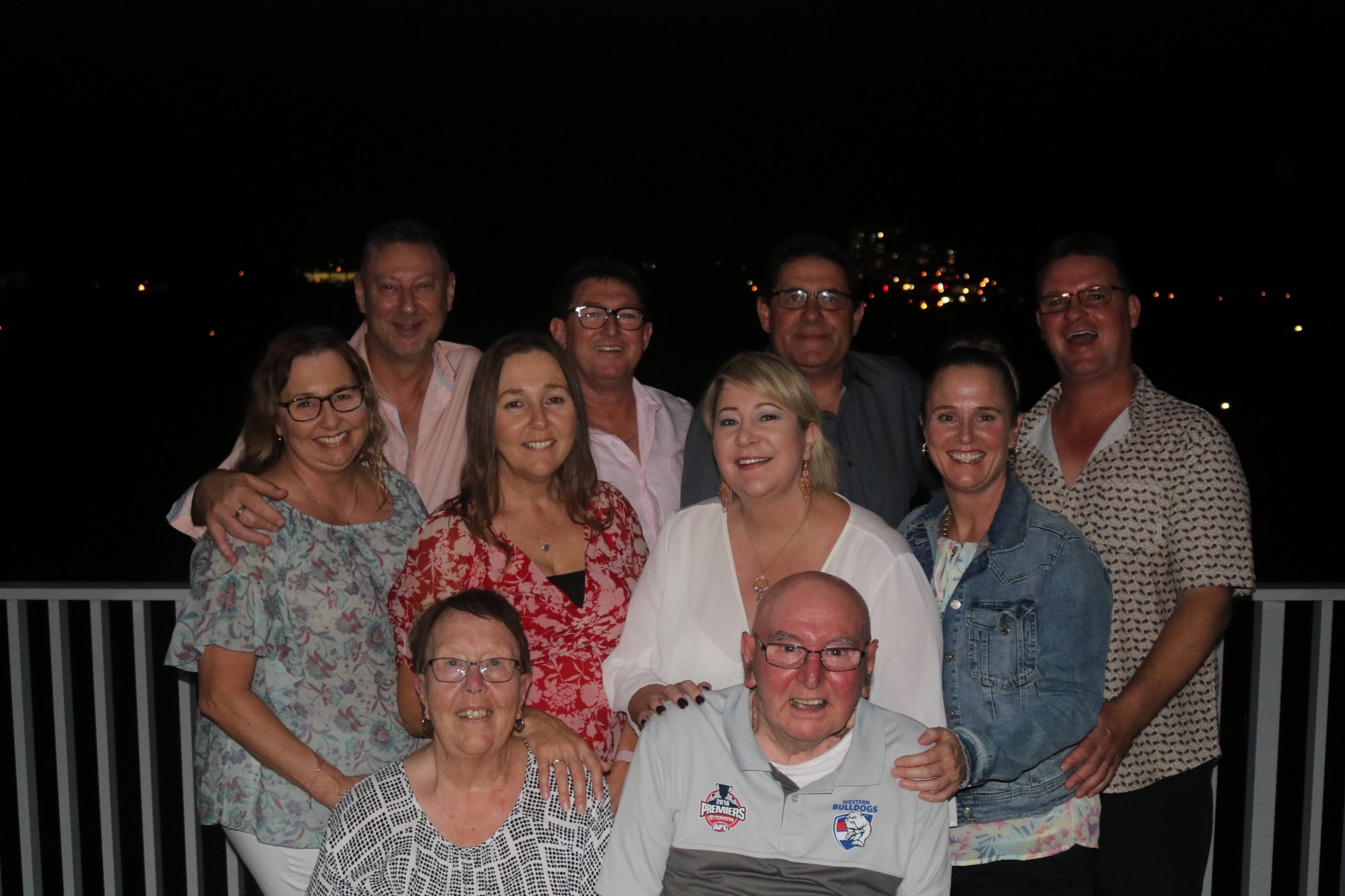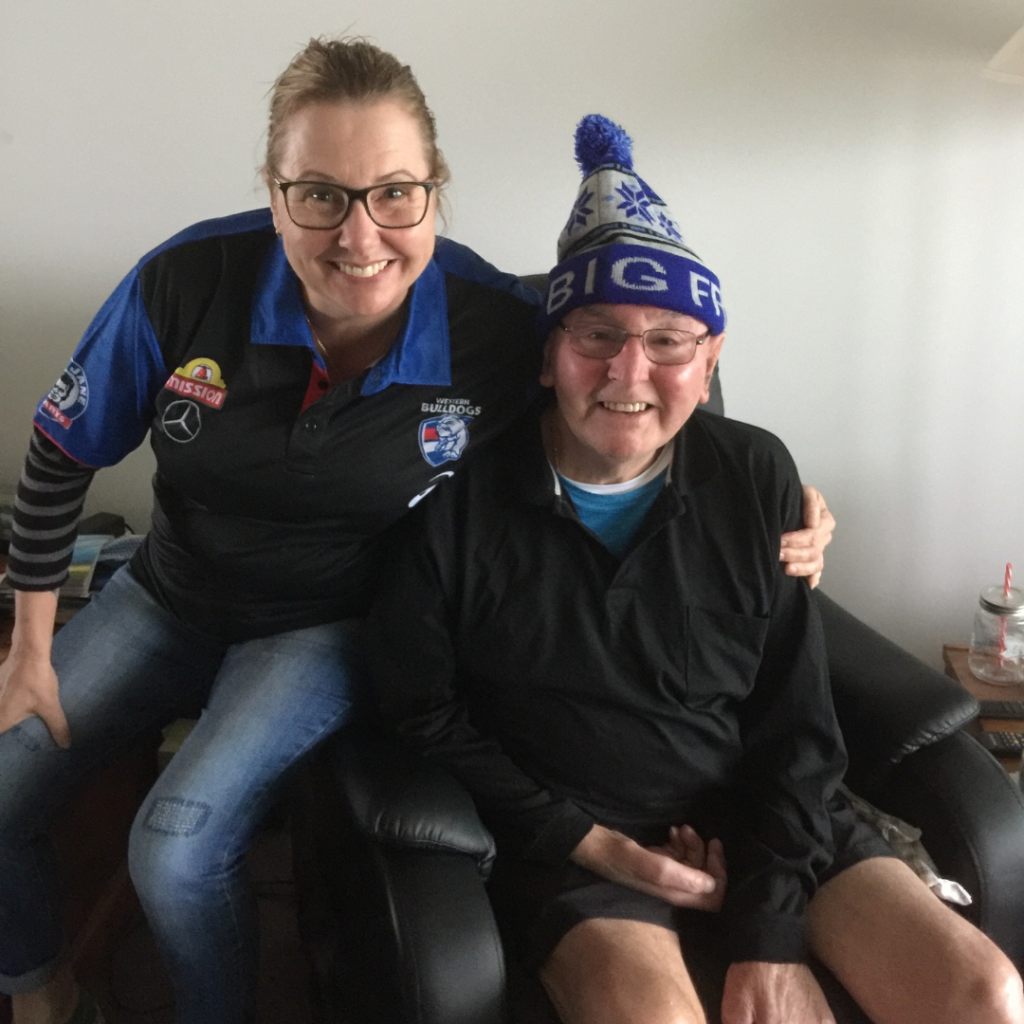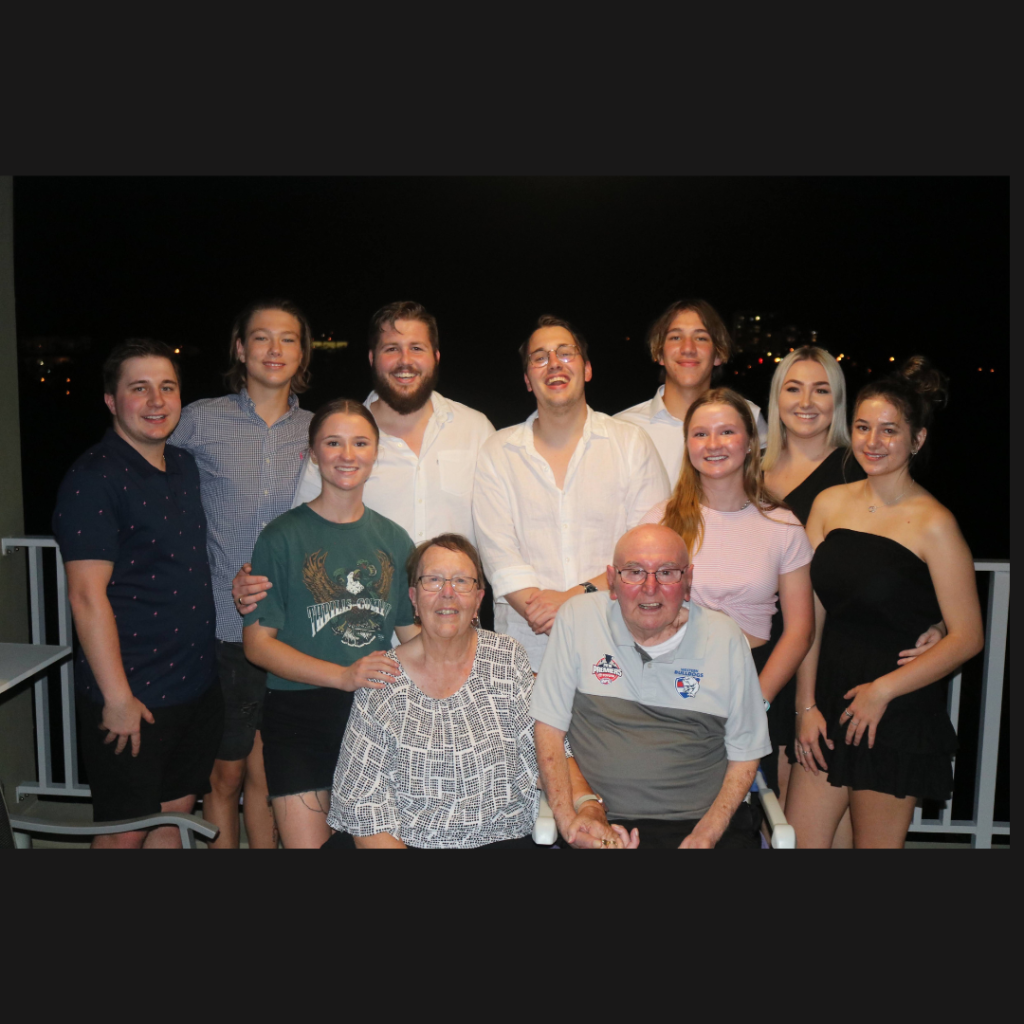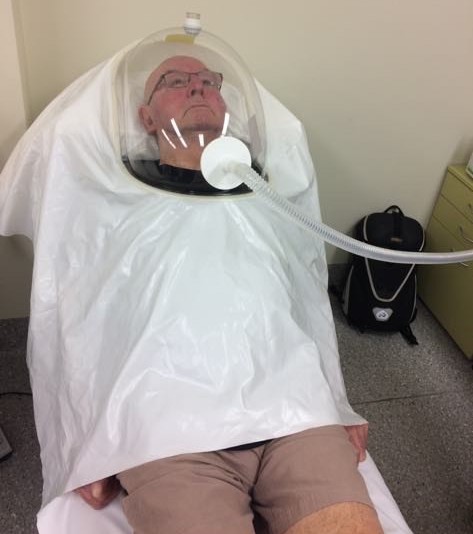Cathy’s story: Knowledge is power in the battle against MND

With a heart full of passion, Ebbel Bierman lived and breathed footy, supporting both the Canberra Raiders and the Western Bulldogs. But no team, no game, could compare to the love he had for his family. His wife, Sue, and daughters Alison, Louise, Cathy, and Joanne were the heart of his world, the ones he adored beyond measure.
As Cathy remembers, Ebbel was a man who saw the bigger picture. A man who understood the importance of research in the battle against motor neurone disease (MND). With unwavering conviction, he supported the fight for a cure, knowing that every breakthrough brought the world one step closer to the answers so many desperately needed.


“Dad died in February 2023, 11 years after first being diagnosed with MND. Throughout that time he was really reflective on his diagnosis. He said, if I can do anything that can help other people, it might not help me, but it might help someone else. His participation in research was how he did that,” said Cathy.
In 2016, Ebbel and Cathy participated in an important MND research study, led by Associate Professor Shyuan Ngo from the University of Queensland and the Royal Brisbane and Women’s Hospital. With the support of a Scott Sullivan MND Research Fellowship, the study aimed to better understand metabolic dysfunction in people living with MND/ALS.
“They were hypothesizing that the increase in metabolism and loss of weight would increase the rapid decline in MND. So, for 12 months Dad would go in, put on his swimmers and swimming cap and sit in a pod and then lie down and do nothing – just be completely sedentary. While he laid there, they would track how much oxygen he breathed in and his metabolism,” explained Cathy.
“I got the opportunity to do one of the pod sessions as a control because even though I was related to him, because I was female and didn’t have MND, they were able to use my session as a control. So, we were both involved in that which is pretty cool.”

Committed to learning all she could about MND and the research being done around Australia, Cathy would try to attend symposiums and talks, to expand her understanding. Today, she continues to advocate the important role research and knowledge plays in the fight against MND.
“Research is gold. There is lots known about MND, but not so much about how we can stop it. You can help by having lots of knowledge. Knowledge is power.”
FightMND invests more than $18 million into research in 2024
In 2024, FightMND is investing $18.89 million into MND research and care initiatives for people living with MND.
Of this, we’re investing $15.44 million into MND Cure research, supporting 25 projects and five career development awards, including:
- 4 drug development projects to advance promising new drugs or therapies
- 7 discovery projects addressing key unknowns in MND research, particularly its causes and progression
- 11 Improving and Accelerating Translation (IMPACT) projects focusing on overcoming challenges in MND drug development and clinical trials
- 2 infrastructure projects to advance MND research infrastructure
- 1 Massey Charitable Trust grant
- 1 mid-career research fellowship to support mid-career researchers focusing on MND
- 4 early career research fellowships to support early career researchers focusing on MND.
We’re investing a further $3.45 million into 10 MND Care support projects for Australians living with and affected by MND.
Learn more about our investment in our 2024 Cure and Care Investment booklet.
Join the fight against MND
At FightMND, our vision is a world without MND. Finding treatments, or a cure, for this insidious disease is only possible through careful, rigorous research. To properly tackle such as relentless disease, the progress can be slow, but the outcomes are progressing this fight.
In just 10 years, we’ve made incredible progress, but we are not done yet. There is still much work ahead, and we need your help to continue this fight. A donation to FightMND will help us fuel the research that will lead to breakthroughs in treatment and, one day, a cure.
By donating, you’re providing hope to those Australians living with MND. Hope that one day we’ll defeat this Beast for good.